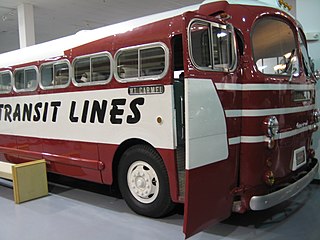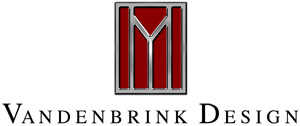
The REO Motor Car Company was a company based in Lansing, Michigan, which produced automobiles and trucks from 1905 to 1975. At one point, the company also manufactured buses on its truck platforms.

A campervan, also referred to as a camper, caravanette, motorhome or RV in North America, is a self-propelled vehicle that provides both transport and sleeping accommodation. The term describes vans that have been fitted out, whereas a motorhome is one with a coachbuilt body.

G.C. Murphy was a chain of five and dime or variety stores in the United States from 1906 to 2002. They also operated Murphy's Mart, Bargain World, Terry & Ferris and Bruners, and Cobbs stores.

A coachbuilder manufactures bodies for passenger-carrying vehicles.
Walter Anthony Murphy Jr. is an American composer, keyboardist, songwriter, and record producer. He is best known for the instrumental "A Fifth of Beethoven", a disco adaptation of Beethoven's Fifth Symphony which topped the charts in 1976 and was featured on the Saturday Night Fever soundtrack in 1977. Further classical-disco fusions followed, such as "Flight '76", "Toccata and Funk in 'D' Minor" "Bolero", and "Mostly Mozart", but were not as successful.

Aerocoach was a bus and coach manufacturer based in Chicago, Illinois, in the United States and was popular in the 1940s. The company existed between 1939 and 1952 when it went out of business. Its first manager was Harry Alphonse Fitzjohn, co-founder of the FitzJohn-Erwin Manufacturing Company.
The Yellow Coach Manufacturing Company was an early manufacturer of passenger buses in the United States. Between 1923 and 1943, Yellow Coach built transit buses, electric-powered trolley buses, and parlor coaches.

Vandenbrink Design is a Netherlands-based automotive design and coachbuilding company, founded in 2006 by Michiel van den Brink and Robert Koumans.

Ben Hur trailer was the nickname of the World War II U.S. Army Trailer, 1-ton payload, 2-wheel, cargo, and the Trailer, 1-ton payload, 2-wheel, water tank, 250 gallon. Specialized variants were also manufactured.
Albert Fisher was a pioneer in the burgeoning auto industry in Detroit. He was the uncle of the seven Fisher brothers, founders of Fisher Body. Albert Fisher built some of the first bodies for many automobiles and trucks. He built the first touring car body for Henry Ford. He was one of those whose efforts started the industry that transformed Detroit into one of the great metropolitan centers of the nation.

LeBaron Incorporated was an American design business from 1920 and also a coachbuilder from 1924 until 1953.

The Hale & Kilburn company of Philadelphia was a furniture manufacturing company founded by Warren Hale and Cheney Kilburn. The Hale & Kilburn company's primary business was the production of railroad car seats for the greatly expanding American railroad companies.
Jack Barclay Bentley is the world's largest and oldest Bentley dealership and part of the H.R. Owen motor retailing group.
Briggs Manufacturing was an American, Detroit-based manufacturer of automobile bodies for Ford Motor Company, Chrysler Corporation and other U.S. and European automobile manufacturers.
Bohman & Schwartz was an automobile coachbuilder in Pasadena, California. It was established after the collapse of the Walter M Murphy Company by some of Murphy's former employees.

Willoughby Company was a custom coachbuilding business in Utica, New York. The Willoughby family had been building carriages in Rome, New York for some generations but set up in Utica when they added town cars and limousines to their products. Though always building custom cars Willoughby also built relatively expensive car bodies in small production runs.
The Walker Body Company, a former carriage manufacturer based in Amesbury, Massachusetts, began manufacturing metal automobile bodies in 1911. It went bankrupt in 1930. The manufacturing site remains as the Walker Body Company Factory.
Biddle and Smart was a manufacturer of carriages and then automobile bodies based in Amesbury, Massachusetts. It started as a successful carriage manufacturer before making the transition to auto body manufacturer in 1905.
Murray Corporation of America run from 1600 Clay Street, Detroit Michigan was, from 1925 until 1939, a major supplier of complete automobile bodies to the Ford Motor Company. Non-automotive stamped steel products were added during the Great Depression of the 1930s. Production switched to wings for wartime aircraft and other aircraft components. Postwar they moved further into stainless steel products including cabinets and kitchen sinks. Washing machines, plumbing and bathroom fixtures, cutting tools and truck engine parts followed. Their last automotive products plant was sold in 1955.











